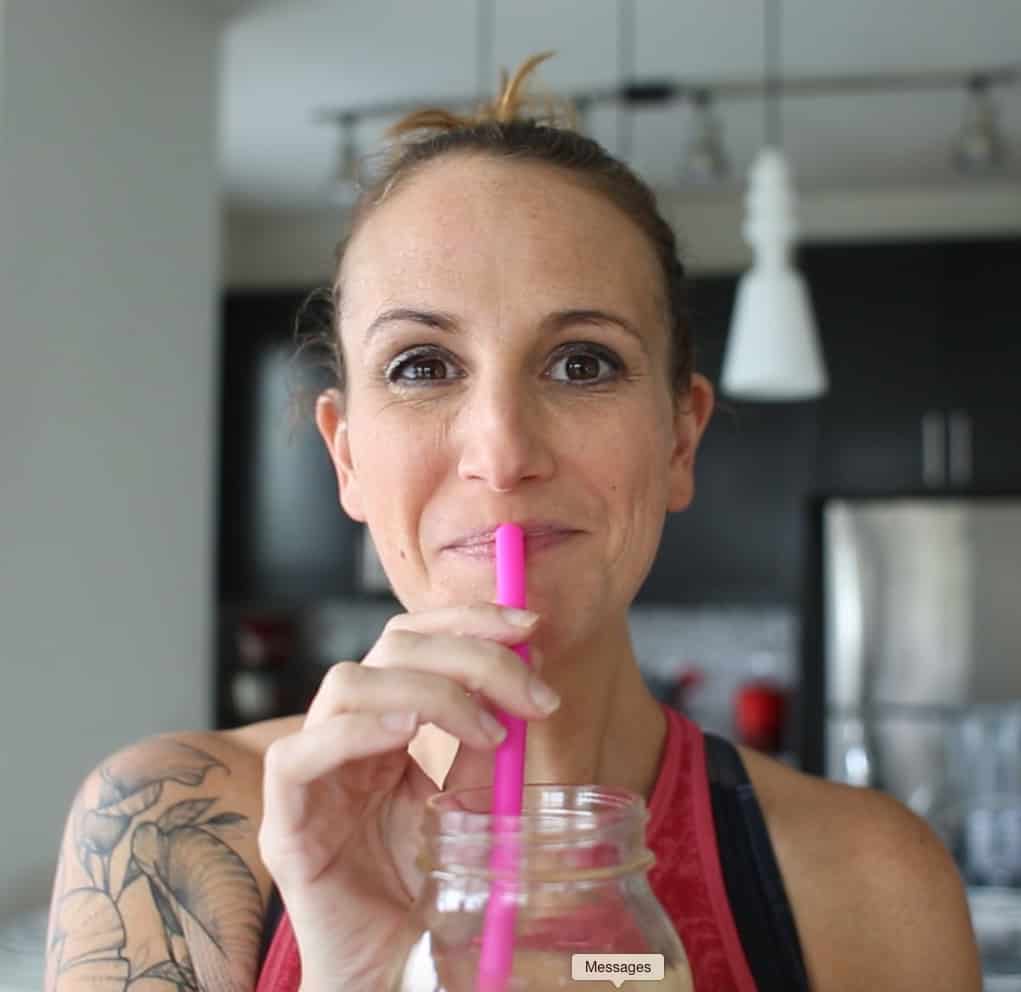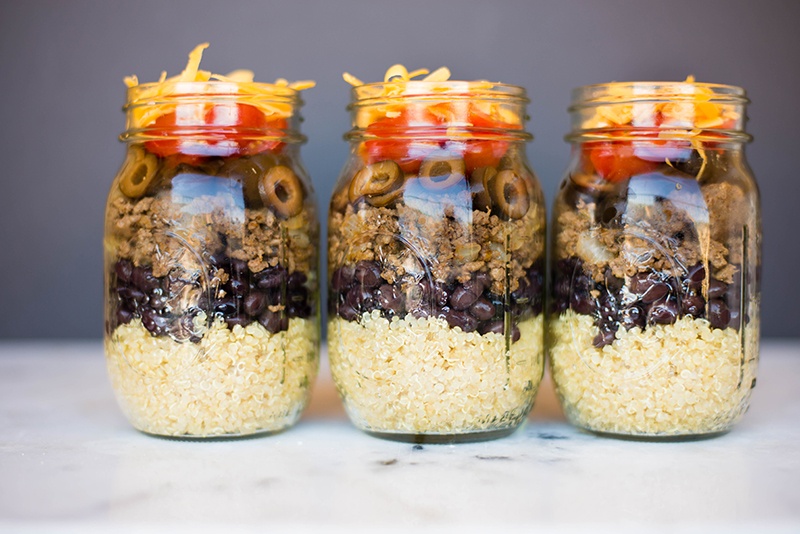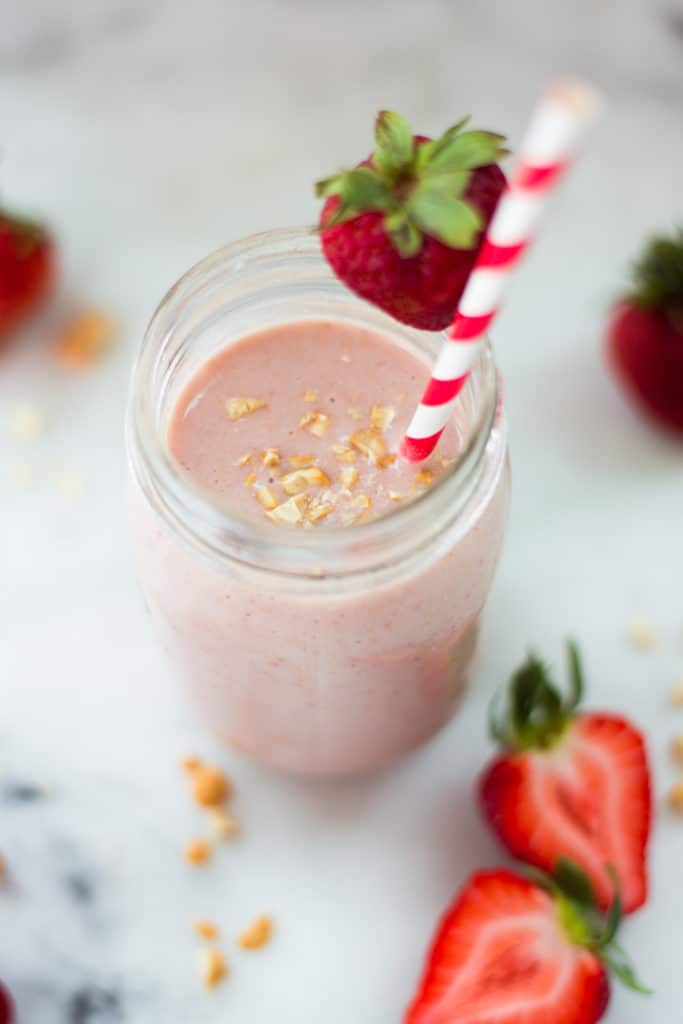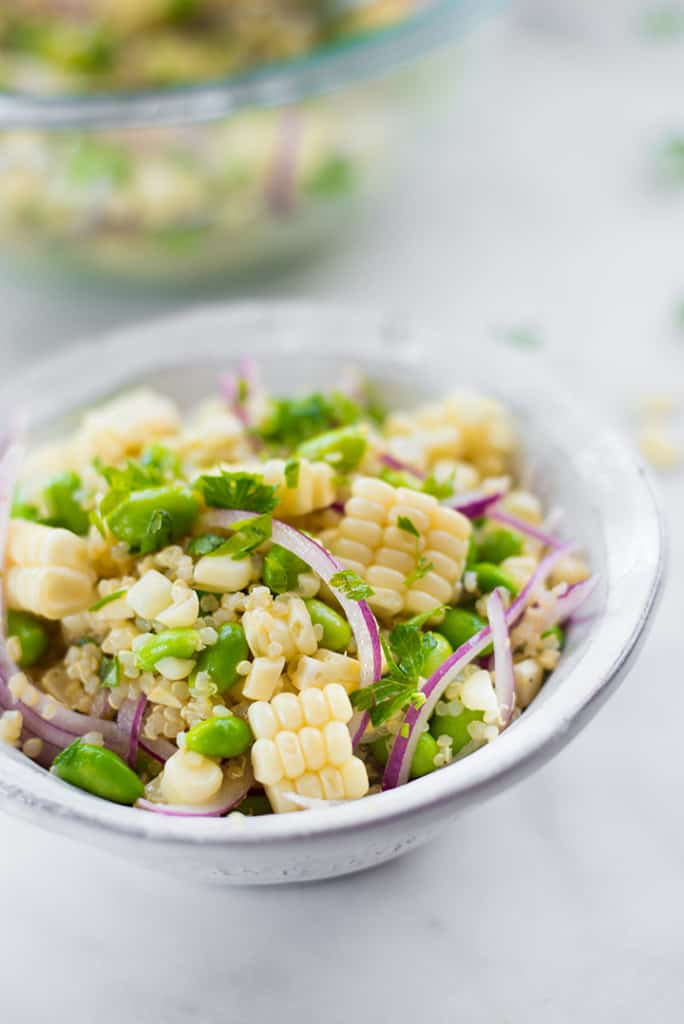Intermittent fasting (IF) changed my life and it can work for you, too! This post will inform you all about IF, how it can help you lose weight, and all that you can expect from this healthy new lifestyle.
I’m sure y’all know by now that I’m a big fan of intermittent fasting (IF). This way of eating has made a huge change in my life and that’s why I decided to write a quick and informative post on it...
To fill you in on the awesomeness of IF!
There is so much good about intermittent fasting and it can give you a new outlook on life. Not an exaggeration.
It works for so many people and, despite the scary name, it's way less restrictive than other eating regimens. It works well with every eating style out there, from vegan to paleo to keto, which is pretty cool.
What makes IF unique is the importance of timing. When you eat is where the restrictions pop up and I’ll be truthful, some people struggle with that.
But I’m going to go through all of that, so you can choose a suitable IF plan, and give you tips on how to make intermittent fasting work for you.

What is Intermittent Fasting?
To put it simply, intermittent fasting is an eating plan. IF involves periods of eating (called your “eating window”) and fasting (going without food).
When eating, you can eat what you want, although I strongly suggest you keep it healthy for the best benefits.
There is no snacking outside of your eating window, so if this is something you like to do, you’ll have to put a bit of discipline into it.
But I can guarantee that when you see the results of IF, you’ll be super-motivated to follow the plan as best you can.
FYI, intermittent fasting has been around for centuries. Whether for religious, medicinal, or other reasons, going for long periods without food really isn’t a new practice.

How Do You Do Intermittent Fasting?
While there is no “best way” to do intermittent fasting, it really comes down to finding a plan that you can live with.
Here are the most commonly used methods for IF:
The 16/8 Method: This means fasting for 16 hours a day and having an eating window of 8 hours. Many people will not eat between 8 p.m. and 12 noon the next day.
The 5/2 Method: With this regimen, you fast for 2 days per week. You can eat normally 5 days a week and eat small meals on the 2 days (say, 250-300 calories per meal). Eat healthily on your normal eating days, though!
The Eat-Stop-Eat Method: This involves 24-hour fasts once or twice a week. It’s a tough one for many.
The Alternate-Day Method: With alternate-day fasting, you fast every other day, eating about 500 calories on fasting days.
The Spontaneous Meal Skipping Method: This method doesn’t have a schedule. You skip meals when it works for you.
The best advice I can give is to recommend you choose the method that you think you can follow most easily and without too much stress. Start there, and if you ace it, you can always try a more strict regimen afterward.
I’ve given tips and noted common mistakes to avoid in my post on Intermittent Fasting for Women, and I’ll list many of them again below.

What Are The Benefits Of Intermittent Fasting?
There are MANY benefits of Intermittent Fasting. First of all, it’s easy to implement. Choose a plan and follow it, knowing that you’ll probably adapt pretty quickly.
Most people I’ve talked to have said intermittent fasting isn’t like a diet. It’s a lifestyle change, making it easier to stick to. When one sees changes to body weight and an increase in well-being overall, time-restricted eating becomes no big deal. I find it easier to naturally eat a healthy diet with IF as well. Bonus!
Some of the other health benefits include:
- IF is great for brain health. It may even prevent Alzheimer’s disease.
- Cholesterol and inflammatory markers improve, as well as blood sugar and insulin resistance. These things account for better heart health.
- Weight loss can result. Stored fat is used as energy.
- Your overall feelings of well-being improve, including increased energy. Use that energy to exercise by getting motivated to move.
Did you know? Intermittent fasting may lead to longevity. Studies are leaning that way, and who doesn’t want to be healthy in their golden years?
How Long Should You Do Intermittent Fasting?
How long you should do intermittent fasting depends on your goals. You don’t have to put a time limit on it (I’ve been doing intermittent fasting for about 10 years).
I’d say give it at least a month to see results, and then continue for 6 months, a year, however long you want.
But if you are talking short-term fasting, I don’t think you should go any longer than 24 hours without food. A fast of 36 or 48 hours is pretty intense.

What Should I Eat During Intermittent Fasting?
When you are in your fasting period, you do not eat anything. Not a thing. Drink water, black coffee (no sweetener), or tea, if you like.
When it’s your eating window, eat well! See what I eat in a day in my video.
I choose foods like:
- Chicken
- Sweet potatoes
- Broccoli
- Protein shake (see my post on the best protein powders)
- Salads
- Peppers
- Eggs
- Cottage cheese
- Full-fat Greek yogurt
Is Intermittent Fasting Healthy?
Intermittent fasting is healthy. I’ve listed some long term benefits above but I think it’s a good idea to inform you about how IF affects your cells and hormones—in a good way.
Cellular repair: Autophagy is when cells digest and remove proteins that are old and not that useful anymore. I think this is a pretty important benefit of fasting, kind of like a cellular housecleaning of sorts.
Hormone increases: I’m talking about the human growth hormone (HGH). Fat loss and muscle gain result with increases in HGH.
Insulin sensitivity: Because of changes for the better in insulin levels along with insulin sensitivity improvements, fat stores are used more easily.
In conjunction with these benefits comes more energy—and that’s always a bonus!
But there’s more…
Fasting boosts weight loss. Not only is it a simple way to take in fewer calories, but fasting also increases your metabolism. IF has been proven to aid in weight loss, and decreases harmful belly fat.
Another great thing is that intermittent fasting causes less muscle loss than diets that emphasize continuous calorie restriction.
It’s important not to binge in your eating window, though, or your efforts will be for naught. Try my 5-Day Anti-Inflammatory Diet Meal Plan or the 7-Day Meal Prep For Weight Loss.

Common FAQs About Intermittent Fasting
With the information provided here on IF and the 2 clean-eating plans I just mentioned, you are all set for knowledge. But take a look at these FAQS for more guidance on the question, what is intermittent fasting?
1. Is it Unhealthy to Skip Breakfast?
No, not unless you have a health condition that requires that you eat early in the day or medication that should be taken in the morning with food.
2. Can I Exercise When Fasting?
Yes, you can, and I do. I drink lots of water and a black coffee in the morning before heading to the gym. Then, I start my eating window after the workout, around noon.
3. Can I Drink Liquids When Fasting?
My go-to drinks are water (lots of it all day long), apple cider vinegar, and coffee. Tea is fine, too.
4. What About Vitamins And Supplements When Fasting?
I recommend waiting until you eat to take vitamins and supplements. Some work better with food, while others may have sugar, and you’ll break a fast without knowing it. Read more here.
5. Does Fasting Slow Down Metabolism?
Short-term fasts (48 hours and under) actually boost your metabolism. Want to know more about how to use your metabolism to your advantage? Read my post on N.E.A.T. for the full scoop!
6. Will Fasting Cause Me To Lose Muscle?
Fasting can actually allow for less muscle loss than other methods of weight loss. It’s essential to keep your protein intake regular and lifting weights helps, too.

Why Am I Gaining Weight On Intermittent Fasting?
I cover the topic of gaining weight when intermittent fasting in detail in my post called Why Am I GAINING Weight WITH INTERMITTENT FASTING: 4 Intermittent Fasting Mistakes That Can Lead to Weight Gain. Pop over to that post and get the full details.
The 4 reasons you may gain weight with IF are:
- Eating too much during your eating window: Don’t fill up on carbs and sugary foods. Lean meat, fish, whole grains, and veggies are good choices. If you’ve got a sweet tooth, don’t worry. Snack on healthy treats like Chocolate Brownie Energy Balls.
- Not eating enough during your eating window: If you starve yourself by not eating enough, your body may start stocking up reserves in the form of fat. (I get into more detail in the post on intermittent fasting mistakes I’ve linked above, so take a look!)
- Not eating enough protein: Take a look here to learn about the importance of protein for your body. To build muscle mass, protein is essential. Easily add protein to your day with a scoop of cleanish Brand Protein Powder in your fave smoothie.
- Eating the wrong foods: Eating junk food that is processed or full of hidden sugars should be avoided, fasting or not. Eat clean to feel the best you can be. Fuel your body with nutrients, not empty calories.
Common Mistakes When Intermittent Fasting And Tips To Fix Them
It’s easy to make mistakes no matter what eating regimen you are trying to follow.
So when you do fall off the wagon or take a few steps backward, don’t fret. We all do it and there is really no sense in beating yourself up.
Here are common mistakes (that are easily remedied!):
- Not drinking enough water. Tip - Try drinking apple cider vinegar. Doing so has tons of benefits!
- Forgetting to include important nutrients in your day. Tip - Eat foods with fiber, healthy carbs, good-for-you fats, and protein.
- Eating processed foods. Tip - Stay away from processed foods. There are a lot of tricky foods that may seem healthy but really aren’t. Look here!
- Be careful of fast breakers. Tip - You cannot eat during a fast. Stick to tea, apple cider vinegar, water, and black coffee. Try 100 % organic cleanish coffee for a satisfying cuppa when in between eating windows.
- Not exercising enough. Tip - Simply walk more! Park the car further from your destination and walk a few extra blocks.

Possible Safety Concerns And Side Effects With Intermittent Fasting
Just to be on the safe side, I want to give you a few more tidbits of information.
Safety concerns: If you have a history of an eating disorder, IF may not be a good choice for you.
Check with your doctor in any case and keep these things in mind:
- If you’ve had amenorrhea (when your periods cease)
- Are trying to get pregnant
- Are pregnant or breastfeeding
- Take medication
- Have diabetes or blood sugar issues
- Are underweight
- Have low blood pressure
Side effects: Sometimes when fasting, people may experience fatigue, nausea, cognitive fogginess and weakness. Constipation isn't unheard of (so eat lots of fiber - vegetables and whole grains). Others will feel dizzy when exercising.
And of course, you may have issues with extreme hunger and that'll bring on irritability. (Remember what I said about drinking apple cider vinegar—it really helps me!)
But do remember that these issues will pass and the health benefits of intermittent fasting outweigh the bumpy start that some may experience (you may find it easy peasy too!).
I think you've got the answer to your question, what is intermittent fasting, and I hope you feel ready to give it a try. Let me know how it goes!
This post contains affiliate links to products I use regularly and highly recommend.



Comments
No Comments